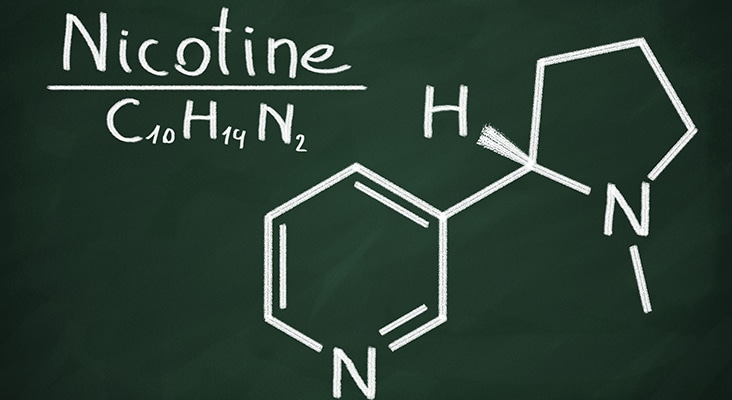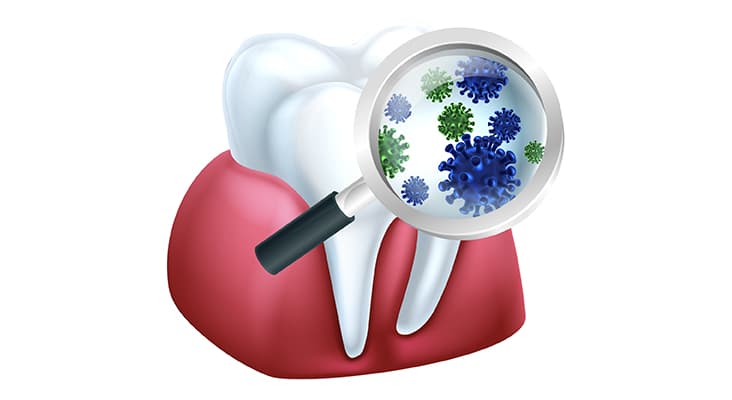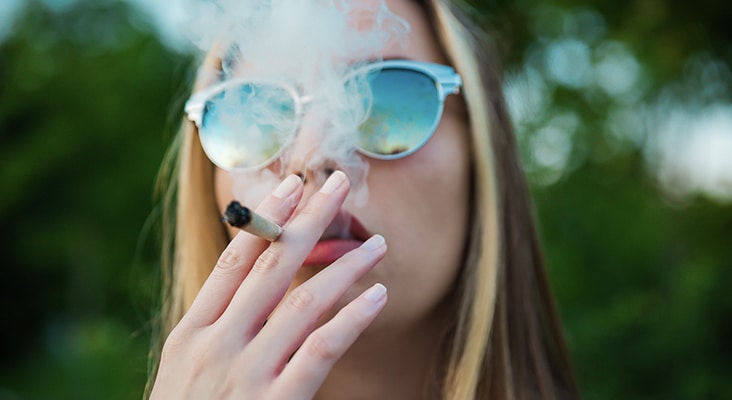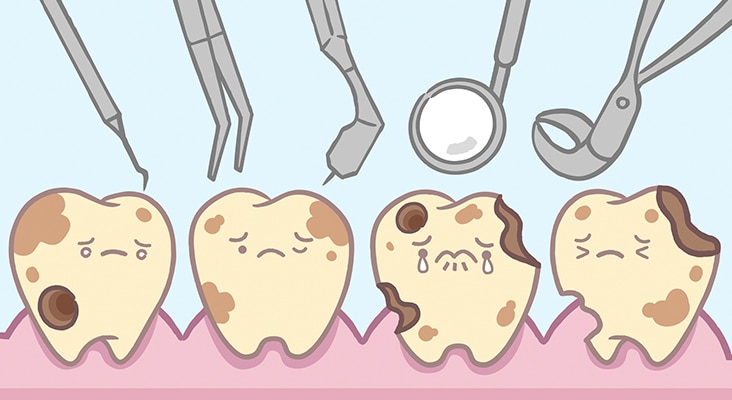Does Nicotine Exposure Increase Caries Risk?
Smoking is a global and national health problem and is one of the most significant health risks that impacts all age groups. Much research has been conducted on the association between dental caries and smoking. A growing number of studies indicate that nicotine—which is an alkaloid component of tobacco—is a major contributor to dental caries. A laboratory at the Indiana University School of Dentistry has demonstrated that nicotine stimulates biofilm formation and metabolic activity of oral pathogens, such as Streptococcus mutans, a Gram-positive oral bacterium. As a result, this stimulation increases S. mutans biofilm formation and metabolism of sucrose into lactic acid, consequently contributing to dental caries.
Not only do cariogenic bacteria impact caries development but so does the nicotine in tobacco.
 makaule / iStock / Getty Images Plus
makaule / iStock / Getty Images Plus
Cariogenic bacteria—such as S. mutans that colonize the hard surfaces of the oral cavity—are unimportant in plaque formation and dental caries development.
 ChrisGorgio / iStock / Getty Images Plus
ChrisGorgio / iStock / Getty Images Plus
A clear explanation of why smoking increases the risk for dental caries is not yet known.
 LordHenriVoton / E+
LordHenriVoton / E+
Clinical studies conducted in various parts of the world demonstrate that a decrease in carious lesions was associated with increased tobacco smoking.
 AleksandrYu / iStock / Getty Images Plus
AleksandrYu / iStock / Getty Images Plus
Microbiological studies explain cariogenic oral bacterial growth is stimulated by nicotine.
 Lin Shao-hua / iStock / Getty Images Plus
Lin Shao-hua / iStock / Getty Images Plus
When S. mutans biofilm grows with increased amounts of nicotine, lactic acid production is increased, which ultimately causes demineralization of the enamel.
 AlexLMX / iStock / Getty Images Plus
AlexLMX / iStock / Getty Images Plus
Dental caries development is stimulated by the presence of nicotine, which upregulates the metabolic activity and biofilm formation of the cariogenic bacterium, S. mutans.
 AleksandrYu / iStock / Getty Images Plus
AleksandrYu / iStock / Getty Images Plus
Share your Results:


Is this quiz 1 CE credit. If so where do you click to print out certificate?